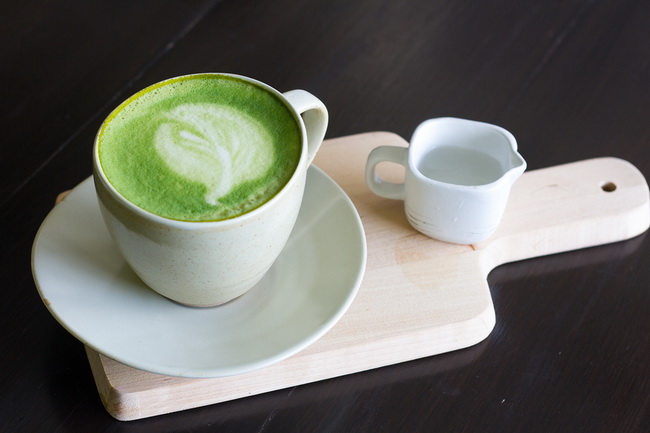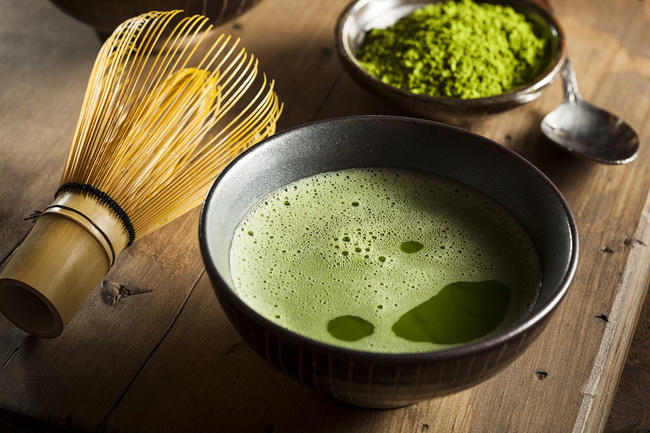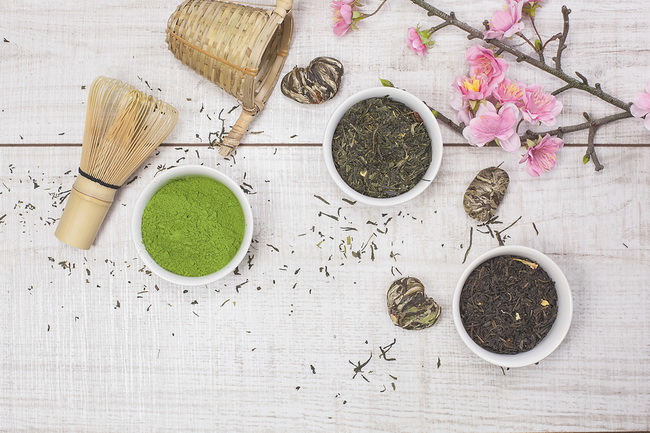- Make It Yourself Lavender Heart-Shaped Bath Bombs!
- 20 Things You Never Knew About “Down There”
- 12 Best Foods For Those Suffering From Arthritis Pain
- 12 Personal Hygiene Mistakes Almost Everyone Makes (Mom Never Told You About #4!)
- 15 Medicinal Plants And Herbs From The Cherokee People
- 12 Mind-Blowing Benefits Of Drinking Coconut Water During Pregnancy
- 12 Outstanding Winter Foods That Won’t Fatten You Up Like A Christmas Turkey
14 Reasons Why You Should Make Green Tea Your Drink of Choice

Photo credit: bigstockphoto.com
When you find out all the health benefits you can get from drinking green tea it won’t surprise you to know that it was first recognized as a form of medicine. It is in recent years that it became more known as a beverage.
Green tea carries more weight as a health food than black tea because it does not go through the fermentation process. This allows the green tea to keep all of the antioxidants and poly-phenols that it started with and that makes it such a healthy choice.
Green tea has been credited with offering health benefits that range from reducing blood pressure levels to eliminating the chances of getting certain types of cancer. While some conditions may require the consumption of one or two cups of tea a day, some may not respond unless you drink at least 10 cups. Here are some conditions that drinking green tea may help you with.
1. Diabetes
One of the major causes of type 2 diabetes is eating or drinking foods that cause your glucose levels to rise and your insulin to spike. When either of these things occur, your body stores the excess sugar as fat. Green tea helps your body to keep blood glucose on an even keel.
Continue to Page 2

Photo credit: bigstockphoto.com
2. Cancer
Green tea has been found to take on cancer cells killing them while leaving the healthy cells alone. It has been found to cut down on the risk of getting esophageal cancer.
3. Weight loss
One thing that green tea really helps out with when you are on a weight loss program is revving up your metabolism. The polyphenol that it contains helps to raise the fat oxidation levels so your body is able to burn off the calories you have consumed quicker.
4. Heart problems
One of the main causes of a heart attack is a blood clot. Researchers have found that green tea helps relax the blood vessel linings which help them better adjust to any blood pressure changes. The tea helps to prevent blood clots from forming which helps prevent the risk of having a heart attack.
5. Blood pressure
Clinical trials have shown that drinking green tea on a regular basis can lower your chances of developing high blood pressure. Keeping your blood pressure levels in line can help prevent you from having a stroke.
Continue to Page 3

Photo credit: bigstockphoto.com
6. Depression
If you suffer from depression, just the act of sipping a cup of green tea should help you relax and think clearly. In addition, green tea contains theanine, which is an amino acid that will help you to calm down with its tranquilizing qualities.
7. Cholesterol
Green tea offers two-fold health benefits when it comes to your cholesterol readings. It is able to lower your bad cholesterol, or LDL, while enhancing the effects of the good cholesterol to the bad.
8. Parkinson’s and Alzheimer’s
Studies have shown that green tea has been able to cut down on the havoc these two diseases leave their patients who suffer from them with. It can also reverse damage to brain cells while protecting other cells from dying off.
9. Dental issues
Dental problems can be not only painful but expensive. If you drink green tea regularly the antioxidant that is in it, catechin, can help you keep these problems at bay. Catechin helps get rid of bacteria that can result in infections in your throat as well as cavities and other dental problems.
10. Signs of aging
Instead of sipping your green tea you may want to look for topical skin care products that contain it. Studies have shown that green tea can help eliminate wrinkles and turn back the signs of aging. When you apply any skin care products that contain green tea you can reverse any sun damage you may be trying to get rid of.
Continue to Page 4

Photo credit: bigstockphoto.com
11. Antibacterial
One of the overall health benefits of drinking green tea regularly is its properties as an antibacterial agent. The catechins allow it to reduce the spread of everything from a virus to cancer. It can even slow down the spread of many different types of diseases.
KEEP READING: How To Choose The Right Tea For Every Health Problem
12. Improves brain function
While green tea has caffeine, it is not anywhere as much as coffee does. Caffeine does have a positive effect on your brain as it blocks Adenosine which is an inhibitory neurotransmitter. What this ultimately does is raise the number of fired neurons and the amount of norepinephrine and dopamine in the brain. The amount of caffeine that can be found in green tea can improve your mood, the amount of time it takes you to react to things, and your memory. Green tea contains L-theanine which is an amino acid that can help improve the function level of your brain. Researchers also found that taking a 360mg capsule of green tea extract along with 60mg of L-theanine will show a dramatic increase in your attention span and memory.
13. Bone health
A study in Nutrition Research, an industry journal, showed that people between 65 and 75 years old who drank green tea ended up with a bone density improvement of 5 percent as opposed to those who did not drink green tea. Raising the bone density levels in any amount can help make bones stronger and less fragile and brittle. Another study by researchers in Hong Kong credit green tea with helping to actually increase bone formation and reduce the breakdown that comes with age and diseases like osteoporosis. You have nothing to lose by sipping some green tea, and you just may build stronger bones.
14. Higher energy levels
Researchers in Japan have been able to prove that drinking green tea can raise your energy levels. They discovered that athletes that depended on their endurance could see an increase of 8 to 24 percent when they drank green tea. They drank about four cups of green tea each day for around 12 weeks to be able to see their energy levels jump.
References:































